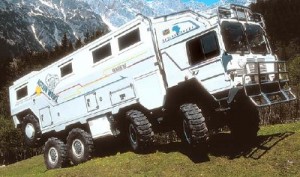 Entering into a survivalist situation often means having to think on your feet. And sometimes, it means having to think on your back as well. Or, to be more specific, about how and where you intend to bunker down each night.
Entering into a survivalist situation often means having to think on your feet. And sometimes, it means having to think on your back as well. Or, to be more specific, about how and where you intend to bunker down each night.
Preparing a camp isn’t simply a matter of pitching a tent and unrolling a sleeping mat. There are all sorts of things to consider when you’re in a survivalist situation; such as, how to make fire without being seen, how to sleep (or not) on wet ground, and how you should prepare for inclement weather or hostile conditions.
With these factors in mind, it becomes clear that preparing a base camp will take careful consideration. But if you prepare in advance you’ll find that, when it comes time to put your plans into action, everything will go smoothly.
Packing for a Survivalist Situation
When it comes to packing, the old adage is ‘pack light’. But when it comes to preparing your base camp, this doesn’t mean you have to sacrifice on any of the essentials. You basic camping kit should contain:
- A medical kit, including antiseptic, plasters and bandages.
- Food; dry goods, energy bars and tins.
- Water, and a water purifying system.
- A cooker, and cooking equipment.
- Firelighters, including a tinder box and flints.
- A sleeping mat, sleeping bag and tent, AND
- A hammock.
- A navigation kit, including torch, compass, notebook, map etc.
- Sharps and tools, including a hatchet, Swiss army knife and safety pin.
These items will form the basis of your survival checklist – the absolute bare minimum of what you will need in an outdoor survivalist situation.
How to Prepare Your Camp
Choosing the location of your camp is the first important part of setting your camp up. It doesn’t matter if you’re bunking down for just one night, or if you intend to ride out a few seasons in the same location. A well chosen spot will aid you in the event of your needing to find food, water or an escape route. With this in mind, camping with your back to a cliff or steep incline is a great idea, as you’ll also be protected from the wind.
The type of camp you will set up will be dependent upon a number of factors, including how permanent your camp will be, what the weather and ground conditions are like, and whether or not you expect to encounter any nasty bugs, predators or other dangers. If in doubt, opt for a hammock. Sleeping above the ground will offer you the best protection from most natural hazards.







